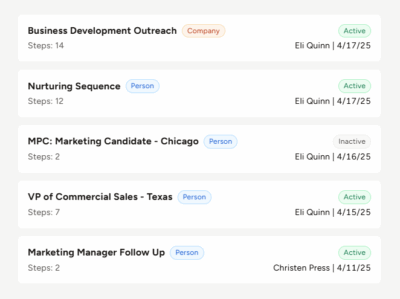Sourcing, screening, interviewing, hiring, and onboarding are all critical steps of the recruitment process. Traditional recruiters exclusively source candidates and collaborate with clients for the remaining steps. RPO tends to go a few steps further than traditional recruiting.
What is RPO?
RPO stands for recruiting process outsourcing. Outsourced recruiting services are alternatives or add-ons to in-house recruiters and HR representatives who are in charge of the recruiting and hiring process. It is an external recruiting solution. However, RPO is different than traditional external recruiting.
A business interested in improving its hiring process can turn to RPO. An RPO provider takes over the recruiting process and decides how the business will set up its hiring process. The RPO provider searches for qualified candidates, hires, examines results, and works with the organization to improve the process.
An RPO determines the scalability of their client’s company. Their work doesn’t end when the job order is filled. They can partner with a client company for years.
RPO providers rely heavily on technology and performance indicators. They work alongside their clients to develop and market employment branding, create an employee value proposition, and change the recruiting process.
An RPO company uses an applicant tracking system for recruiters to store candidate information, notes and ideas, delegate tasks among recruiters, and track how long it takes to fill a job order. Because RPOs rely heavily on performance indicators, applicant tracking systems provide the information for the recruiting metrics they need, like time to fill, response rate, source of hire, and turnover rates.
RPO vs. traditional recruiting
So how does RPO differ from traditional recruiting? A traditional recruiter uses their own recruiting process to help hire a candidate. An RPO company implements a recruiting process into the client company to help hire and retain current and future candidates.
Picture a house with a leaky roof. The RPO recruiter is like a roof repairman and a bare-bones recruiter is like a decorator. The decorator finds new furniture without water damage, but they don’t stop the leaky roof. The roof repairman redoes the roof of the house so that leaks don’t happen again.
Basically, an RPO provider works on the company to address and resolve issues in the current recruiting process.
Many traditional recruiters and RPO companies share the same characteristics, like collaborating with clients during interviews, measuring performance, and helping clients with employment branding and employee value propositions.
Like a traditional recruiter, an RPO provider is not on a company’s payroll. They are not the client company’s permanent employees.
Creating an RPO solution
Again, RPO providers go further than offering sourcing and general recruiting services. They create plans to strengthen the company’s current recruiting process. To create a recruiting solution, the RPO provider must do the following.
Gather information
Before enacting change in the company’s recruiting process, the RPO provider needs to learn everything they need to about the company. They need to learn the ins and outs of the current process and what works. Then, they can identify problems and work toward coming up with a solution.
Design a solution
After identifying issues in the current process, the RPO company creates and tests a new recruitment process. In this stage, the RPO recruiter typically works with an HR representative or the employer. The solution should identify new ways to recruit, hire, and onboard. And, the solution should determine how to test results (e.g., which metrics the RPO provider will use).
Launch the updated process
Once the new recruiting solution is solidified, the RPO uses it to find new candidates.
Analyze results
After launching the new process, the RPO recruiter measures its effectiveness using metrics. For example, they might find the time it took them to fill the position. Later in the year, they might measure the company’s turnover rate.
Interested in using metrics for your recruiting process? Watch Jon Bartos’ webinar: “Creating a Culture of Performance by Using Metrics” to learn which ratios to use, how they can boost your recruitment marketing strategy, and more!
Recruitment process outsourcing benefits
For clients, there are many benefits to using an RPO company. Instead of paying for an in-house recruiter, they can outsource their needs to an RPO. And, the RPO redesigns their process. Instead of the client needing to measure the effectiveness of their program, the RPO does it on their behalf.
Because clients can work with an RPO recruiter for years, they get to know them and their work ethic. This decreases the chances of the client spending time hiring new recruiters and allows the client and RPO to foster a strong relationship.
Being an RPO provider or incorporating some of the RPO characteristics into your strategy can also benefit you. As an RPO recruiter, you measure the results of your services and make educated adjustments, so your process is always improving. You can market your services based on quantifiable data and retain clients for years.









